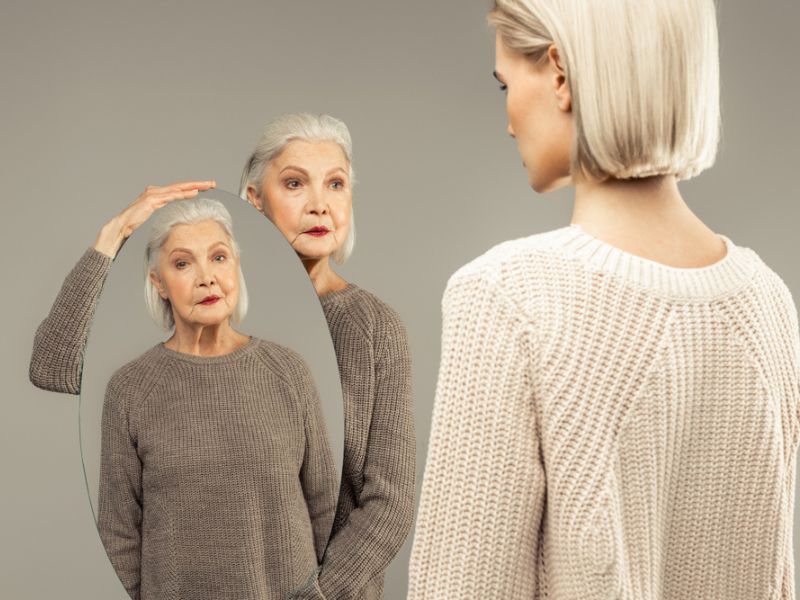The height of a person reaches its maximum when they become an adult. That number comes up regularly in your everyday life, whether at the doctor’s office or shopping for pants. There is no myth that your height changes with age – you shrink as you age.
Aging is associated with height loss. It’s normal to lose between one and three inches of height as you age. Medline Plus estimates that people lose a centimeter in size every ten years after age 40, and height loss speeds up after age 70.

Image Credit: Shutterstock/Yakobchuk Viacheslav
In some cases, age-related height loss can indicate an underlying health condition. Get to know why getting shorter as you age becomes a problem.
What Causes You To Get Shorter?
People get shorter as they age because their bones, muscles, and joints change. Geriatrician Angela Catic, associate professor, explains: “A few things are going on here.” One is that as you age, your spine’s discs lose fluid. She said, “They become dehydrated and, with that, they lose height — and you lose a bit of height.” Catic says weak abdominal muscles can result in a stooped posture, making you appear shorter.
Difference Between Normal Height Loss And Osteoporosis
Catic explains that osteoporosis can lead to spinal compression fractures and tiny breaks in the vertebrae. She said, “In many cases, people don’t even realize this happens.” During your routine well visits, your doctor should keep track of your height. According to the Department of Health and Human Services, performing a bone density test takes about 15 minutes.

Image Credit: Shutterstock/Dmytro Zinkevych
How To Avoid Height Loss
It’s normal to lose height. Catic recommends the following to reduce your risk of height loss:
- Keep yourself fit.
- Regular exercise and lifting weights strengthen your bones.
- Make sure you get enough calcium and vitamin D.
- You can prevent osteoporosis by avoiding tobacco, excessive alcohol, and caffeine.
The Right Time To See A Doctor
According to the NIH, osteoporosis can manifest as severe back pain or a hunched or stooped posture. If you are experiencing height loss, have your doctor examine you at your next annual exam. Get in touch with your doctor if you seem to get shorter rapidly.